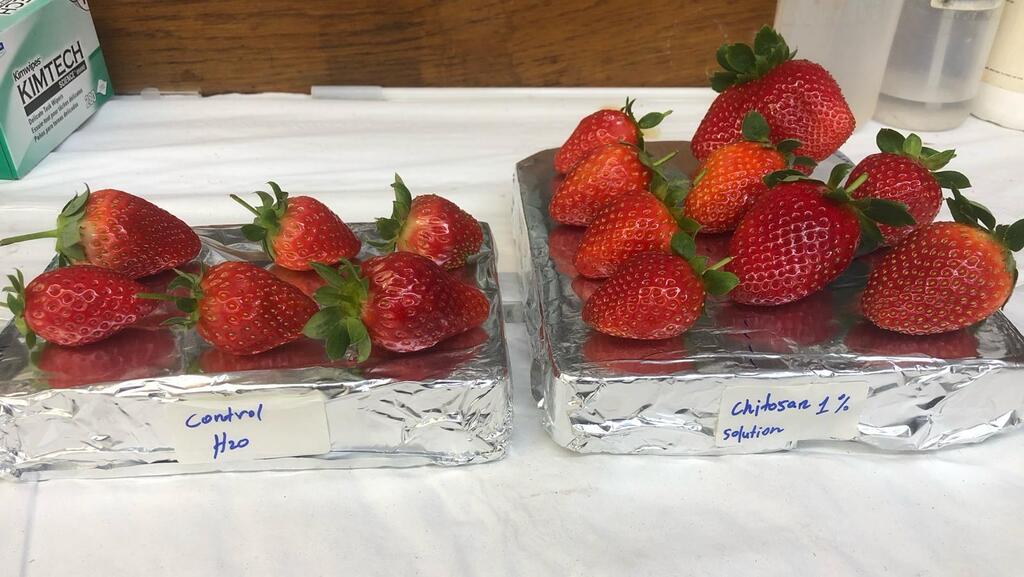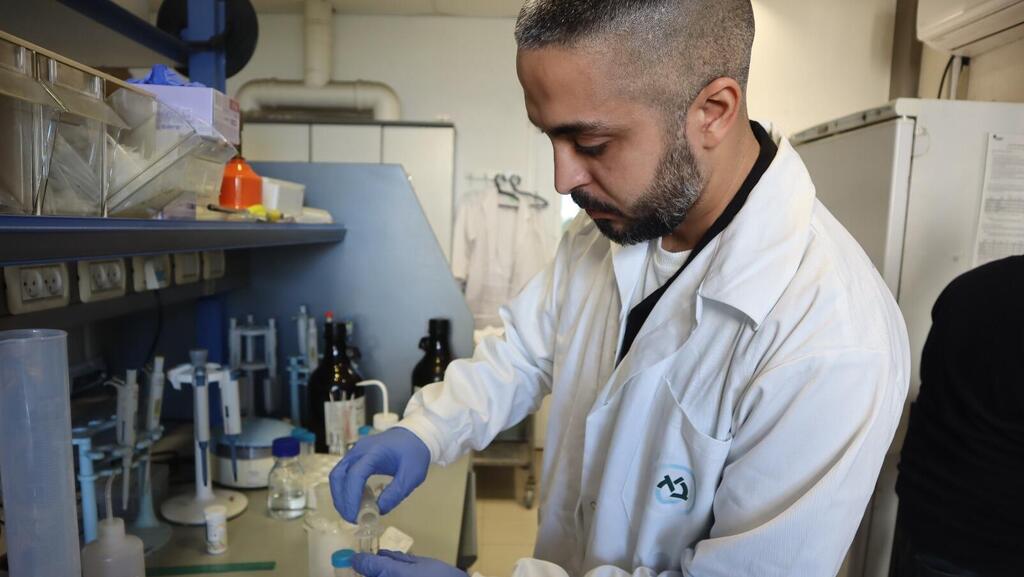Getting your Trinity Audio player ready...
Researchers from the Department of Chemistry and the Institute of Nanotechnology at Bar-Ilan University have developed a method to preserve the freshness of fruits and vegetables and extend their shelf life by using sound waves.
Read more:
The researchers explained that the innovation will allow the creation of edible nanoparticles using sonochemistry – coating fruits and vegetables with sound waves in a simple, rapid and environmentally friendly manner, thereby prolonging the shelf life of the foods.
In today's fast-paced and dynamic era, there is a growing desire to preserve and extend the shelf life of fresh products. Fruits and vegetables sitting in the fridge or on the kitchen counter undergo rapid and natural decay from the moment they are harvested in the field until they are eaten.
Ph.D. student Belal Abu Salha has developed an innovative method for coating fruits with edible nanoparticles using sonochemistry - a method involving sound waves.
The research began in the Golan Heights, where Abu Salha's family runs a strawberry farm. He pondered how to prolong the freshness of strawberries from the moment they are picked until they reach the table.
"The method I developed allows the use of sound waves, in a process called sonication, to develop a coating of nanoparticles from the material chitosan. Coating the strawberries with chitosan imparts antibacterial properties to the surface of the fruit because they have a larger surface area and a higher affinity for bacterial cells, thus effectively extending the shelf life of fresh strawberries in cold storage," he explains
Chitosan is a natural material derived from polymers such as chitin, polysaccharides, and proteins. Scientists have found that it can serve as a safe alternative to traditional methods of preserving fruits and vegetables. By coating them with this material, the damage caused by bacteria and microbes is significantly reduced. Moreover, chitosan is environmentally friendly and biodegrades naturally.
"The sound wave method, sonochemistry, allows the chitosan particles to adhere to the fruit surface and coat it quickly and efficiently - thus making the development work effectively," according to Abu Salha.
Professor Aharon Gedanken from the Department of Chemistry at Bar-Ilan University developed the sonochemistry method and guided the doctoral student in his work. "When the liquid solution is bombarded with sound waves at high frequencies, a process called ultrasonication, something happens," explained Gedanken.
"The liquid solution agitates rapidly, creating microscopic bubbles that implode on themselves. When this collapse process occurs near a solid surface like a strawberry or even a millimeter-sized grain of material, a high-speed liquid stream is generated toward the solid, propelling particles from the solution onto it at tremendous velocities. The particles embed into the solid and cannot be removed by rinsing. This allows various properties to be imparted to the solid that it didn't have initially. For example, antibacterial properties, durability and more. This enables, for instance, the immersion of fruits and vegetables or any other material in antibacterial substances," he said.
"In the research process, the chitosan solution underwent a sonochemical process, and the sound waves caused the creation of edible nanoparticles, with antibacterial properties, which were deposited on the surface of the strawberry," explained Abu Salha. "Then, I examined the antibacterial activity of the strawberry and its physical and chemical characteristics such as sugar content, acidity and rate of decay. I found that treated strawberries with chitosan edible nanoparticles extended their shelf life by 15 days."
Through sonochemistry technology and innovative approaches to green chemistry that it has brought, this research allows the discovery of green solutions and their application in the food preservation industry in an easy, efficient, and most importantly - environmentally friendly way. Abu Salha's development will enable to preserve fruits vegetables, and fresh foods for a longer period and prevent bacteria and microbes from altering their taste.



